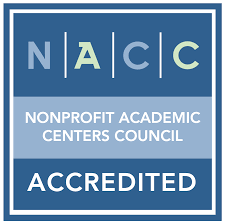
Online Master of Science in Nonprofit Administration
Total Credit Hours
33
Cost Per Credit Hour
$378

Lead with Purpose: Advance Your Career in Nonprofit Leadership
The online Master of Science in Nonprofit Administration from LSU Shreveport is designed for professionals committed to making a meaningful impact in the nonprofit sector. This fully online program offers a comprehensive curriculum that blends theoretical knowledge with practical application, empowering you to navigate the complexities of nonprofit management. With the flexibility to complete the degree in as few as 12 months, it is ideal for working professionals seeking to enhance their leadership skills without disrupting their careers.
The program is accredited by the Nonprofit Academic Centers Council (NACC), ensuring a high-quality education that meets industry standards. Students can tailor their studies through specialized tracks in Nonprofit Administration, Nonprofit Development, Disaster Preparedness, and Faith-Based Organizations Administration Track, aligning their education with their career aspirations.
Whether you're aiming to advance in your current role or transition into a new leadership position, this program equips you with the knowledge and skills to lead effectively and drive positive change in your community.
The MS in Nonprofit Administration offers four tracks: Nonprofit Administration, Nonprofit Development, Disaster Preparedness and Faith-Based Organizations Administration Track.
Application Deadline
Feb 23, 2026
Classes Begin
Mar 16, 2026

NACC Accreditation
The MS in Nonprofit Administration is one of just 12 programs in the world accredited by the Nonprofit Academic Centers Council.
Nonprofit Leadership Alliance Partnership
LSUS is partnered with the Nonprofit Leadership Alliance, an organization dedicated to creating and nurturing leaders who can run effective organizations.
Nu Lambda Mu Honor Society
Students are eligible to become members of the Nu Lambda Mu honor society through LSUS's Nonprofit Academic Centers Council (NACC) accreditation.
Program Duration
We offer 100% online accelerated course work, allowing students to finish in as few as 12 months. This flexible format is ideal for working professionals.
I enjoyed being in an online environment with classmates from all over the country. Not only were the professors amazing, but many of my classmates actively worked in the nonprofit sector. It was great to learn from my classmates’ experiences- it helped to solidify the course material and make it applicable to the real world. Because of this program, I feel very prepared to enter a leadership position at a nonprofit.”
See What Makes This Program Special
Why I Got a Master of Science in Nonprofit Administration
Related News
Ready to reach your goals?
Take the first step forward by completing the form and our enrollment team will contact you soon to discuss:
- Additional information on the Master of Science in Nonprofit Administration online program
- Financial aid options (employer funding, military benefits)
- Receiving credit for past education (transfer, professional development)
- The admissions process and timeline